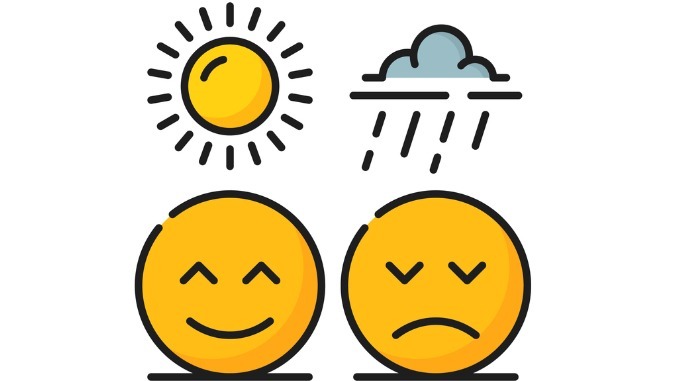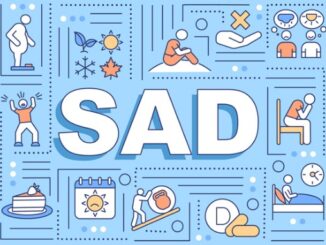
British summer time usually marks the start of al fresco dining, pub garden, and picnic season. But this year, umbrellas have been the must-have accessory across the UK. The constant rain and grey skies have made layering essential, and it’s no surprise our moods often reflect the gloomy weather
CREDIT: This is an edited version of an article that originally appeared on The Independent
Experts have long discussed how weather affects our mood, energy, and mental functioning. Antonio Kalentzis, a psychologist and member of The British Psychological Society, explains that weather significantly impacts our mood through biological mechanisms like serotonin production and our sleep/wake cycle.
“Sunshine boosts serotonin levels, improving our mood and promoting feelings of wellbeing,” says Kalentzis. “Cloudy or rainy days reduce serotonin production, causing feelings of sadness or lethargy. Exposure to natural light regulates our circadian rhythms, influencing our sleep patterns and overall mental health.”
London-based psychologist Barbara Santini emphasises the importance of vitamin D for our mood and brain functioning. “Vitamin D, synthesised in the skin through sunlight, supports brain health. Deficiencies can lead to depressive symptoms. During rainy seasons, reduced sunlight means lower vitamin D production, potentially worsening feelings of depression or fatigue.”
Dr Laura Geige, a medical doctor and psychologist, adds that dark, ragged clouds can increase melatonin production, the hormone regulating sleep, leading to daytime fatigue. “On darker days, the body produces more melatonin, causing drowsiness and fatigue.”
Negative impacts on daily life
Santini explains that weather influences people’s willingness to engage in activities, impacting mental health. Grey skies often keep people indoors, while bright sunshine encourages outdoor activities, boosting energy and serotonin levels.
Seasonal Affective Disorder (SAD), a type of depression that comes and goes in a seasonal pattern, is a notable condition triggered by bad weather. Symptoms of SAD include low mood, anxiety, stress, and increased fatigue. In serious cases, it can lead to aggression, insomnia, headaches, reduced appetite, and brain fog.
Kalentzis notes that rising temperatures can also trigger mood episodes, especially in individuals with mental health conditions like bipolar disorder. “Elevated temperatures can induce manic episodes due to physiological stress and sleep disturbances. High temperatures can also lead to dehydration, increased irritability, and anxiety, worsening existing mental health issues.”
Mitigating the negative impacts
While we can’t control the weather, mental health experts suggest several lifestyle changes to combat the rainy day blues. All experts agree on the importance of regular physical exercise to boost energy levels and improve mood. They also recommend getting as much sun exposure as possible, even on cloudy days, or opting for light exposure therapy.
Geige advises, “Using light therapy lamps simulates sunlight exposure, helping regulate serotonin and melatonin levels. Regular physical activity, a balanced diet, and adequate sleep are vital for maintaining energy and mood. Stay connected and engage in social activities, even if they’re indoors or virtual, to combat isolation.”
Kalentzis urges anyone experiencing persistent symptoms of SAD to contact their local GP. “If you need help, don’t hesitate to ask. Seeking support from friends, family, or mental health professionals is a sign of strength. Stay positive, be mindful of your needs, and prioritise your mental well-being regardless of the weather outside.”
While the British summer weather may not always be bright, taking proactive steps can help maintain your mental health. Embrace the season with a positive mindset and these expert tips to stay upbeat, no matter what the sky looks like.


Be the first to comment